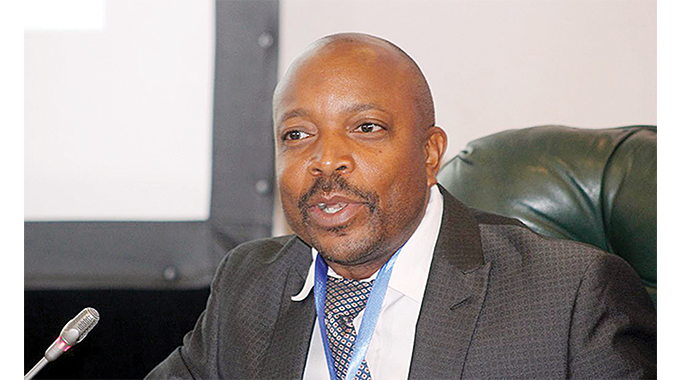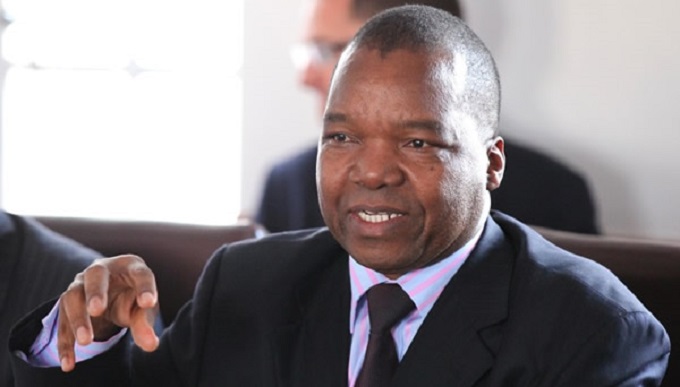Social media: Double-edged sword for female politicians

Thandeka Moyo-Ndlovu, Chronicle Reporter
THE Cyber Security and Data Protection Bill criminalises cyber bullying, an abusive act which has deterred many potential Zimbabwean women from participating in politics. Not only has the scourge discouraged powerful women from joining forces to birth a better Zimbabwe, cyber bullying has also been used to soil the reputation of the few brave females who despite norms chose to swim with the sharks.
One may be tempted to think this only affects women from developing countries like Zimbabwe but the same is true even in First World countries with advanced technologies and what some say more desirable justice systems. In fact, three quarters of women Internet users worldwide have experienced some form of online violence and the use of social media can be described as a double-edged sword for female politicians.
A survey carried out in seven countries including Zimbabwe confirms that despite instruments like the Cyber Bill, there is a growing online incivility, hate speech and overt violence against women in politics.
The study also reports little regulation and widespread impunity concluding that there is a real negative effect on women’s freedom of expression and political participation. Online and offline violence against women in politics is a violation of human rights and by hindering women’s political participation, is also a violation of women’s political rights.
For Miss Abiona Mataranyika (22) who broke a 67-year record by becoming the first student representative council (SRC) president at the University of Zimbabwe, cyber bullying almost cost her sanity. Fake social media accounts were created to body shame and humiliate her from the moment she decided to challenge history and UZ’s status quo. She managed to shrug off stiff competition and overcome being a victim of cyber bullying, before winning the much-coveted seat.
“Cyber bulling is the reason why women are not participating in politics as they fear character assassination. When I wanted to run for the presidency, people created all sorts of stories about me, they circulated my pictures saying I have an ugly figure as a means to demotivate me from contesting,” says Miss Mataranyika.
“I almost lost it because the pressure was just too much but I am glad I soldiered on despite all the character assassination.” She says the only solution for women at the moment is to rally together and support each other as cyber bullying may be there forever.
“There is little that we can do to instill that participatory spirit in women as some create ghost accounts just to terrorize us. I have taught myself to be strong and stand like a true leader hence the need for us to stand united as women and continue encouraging others to go for those top positions no matter what,” she adds.
For Women in Politics Support Unit (WIPSU) president, Mrs Sifelane Ngoma the new Bill is not sufficient to protect women from abuses that still occur offline.
She says a lot still needs to be done to tone the political environment so that it accommodates female politicians.
“The starting point will be how do we regulate and manage the electoral environment because the freedoms that we enjoy offline should be enjoyed online. The protection we have offline should be seen online and I tend to wonder to what extent we have gone as a country to reduce undue perplexities of women who are seeking to exercise their political participation rights,” says Mrs Ngoma.
She says besides regulating online activity, authorities should address recurring problems that show women are still not at par in Zimbabwe as far as political participation is concerned. Mrs Ngoma added that mechanisms in place are there to manage the administrative process of election but the environment under which elections occur still leaves a lot to be desired.
“All forms of violence still occur within the political spaces and we cannot then jump and focus on online activity when we have lots of unresolved issues affecting women offline. To say women themselves can use the Bill is theoretically correct but why should victims do more to protect themselves when we have a constitution? We should create a mechanism to ban or penalize certain behaviour because we want to reduce the number of hindrances that women face in their political participation,” she said.
All that female politicians want is a tolerant and inclusive political environment, added Mrs Ngoma. “We carried out a study before the 2018 elections and discovered that women are five times more at risk to suffer from hate speech than men whenever they intend to join politics.
We want the State to bear the burden of delivering a democratic space that women would love to contest in not to say women should have a double burden of also dealing with people who abuse them on social media. As long as we do not talk about an electoral system that will deliver 105 women in constituencies and more women in wards then we can forget about these other things,” she added.
However, Engineer Jacob Mutisi said the Bill can provide women a chance to participate in politics free from cyber bullies. “They end up committing suicide or stressing a lot hence I encourage every woman to go through the Bill and know how to use it to their advantage.

Jacob Kudzayi Mutisi
What makes the new Cyber Bill powerful is that laws of the land can be used to have offenders prosecuted,” said Eng Mutisi. He called on the media and women’s organisations to publicize the Bill and ensure every woman is well versed with its provisions.
“Our criminal codification is there for people to read and understand but many, especially women, do not understand the law. This is a great opportunity for everyone to go through the Bill, read one page a day,” he said.
The Cyber Bill also protects female MPs from derogatory terms that were used commonly during parliamentary sessions, added Eng Mutisi.
Online violence according to gender activists is a manifestation that whenever new platforms emerged, the violence against women migrate to those platforms. Because social media is a space not easy to control or to create rules that govern the use of language on it, it becomes the most suitable place to undermine and belittle women driving hundreds quit the public life and to resort to the private sphere.
Ms Goodluck Kwaramba the chairperson of the Zimbabwe’s Parliamentary Caucus, who is also a victim of cyber bullying, says the abuse against women in politics has been on the rise in Zimbabwe. She says the growing number of women who are being put off for standing for election due online abuse has been worrisome.
“An online agenda to stop women from having a voice and from expressing their opinion has been troubling. In a bid to thwart women from having a voice many have been victims of sexual and gender-based harm.
The technology enabled sexual assault against women should be stopped and the only way it can be stopped is through a legislation, a law that help fight against such abuses,” said Ms Kwaramba. “As a female politician I can testify that from personal experience I have witnessed image-based sexual abuse, cyberstalking and criminal harassment, online sexual harassment; and hate speech.
It might seem small or the society may not see the consequences, emotionally, physically, mentally, but cyber bullying is an ogre that will haunt the female politicians for a long time until something is done.”
Renowned gender activist and MP, Ms Priscilla Misihairabwi-Mushonga said despite her contribution towards amending the Cyber Bill, she chooses to remain offline. The veteran and active politician added that cyber bullying is so rife she would rather remain ‘unseen’ than risk her mental health by going online. “Some of us have been very supportive of the Cyber Bill because we felt that something had to be done in terms of regulating the use of these platforms.

Priscilla Misihairabwi-Mushonga
The issue around cyber bullying is basically used by men who have no confidence, cowards who hide from getting into a direct engagement by going behind the cyber,” said Ms Misihairabwi-Mushonga.
“If social media remains unregulated it will be of more harm than good. Personally, this is why I am not active on social media because I have realized that it can destroy my self-esteem.” Ms Misihairabwi-Mushonga also said her decision to remain offline may seem wise but it automatically means she cannot effectively interact with her constituents and engage freely from a more conducive platform which is online.
“So cyber bullying is a deliberate strategy used against women to make sure that they silence us because if the mainstream media does not cover you then you need an alternative platform to operate from. “We need laws and now that Twitter banned Trump for some time means it is acceptable that people are taken out when they abuse the media.”
She urged authorities to sanction those who fuel cyber violence. “We need to get an agreement where we sanction certain people who violate human rights on social media as they sin with impunity,” she says. “They deserve travel sanctions so they understand that cyber bullying is equal to terrorism and they need to be taken out.
We need to come together and discuss this even at the UN Security Council level because it’s even cascading to school children whom we are expecting to be our future politicians,” adds Ms Misihairabwi-Mushonga. “If we let our girls get abused then we do not have a future as women politicians as they will associate the cause with abuse and violence.”-@thamamoe










Comments